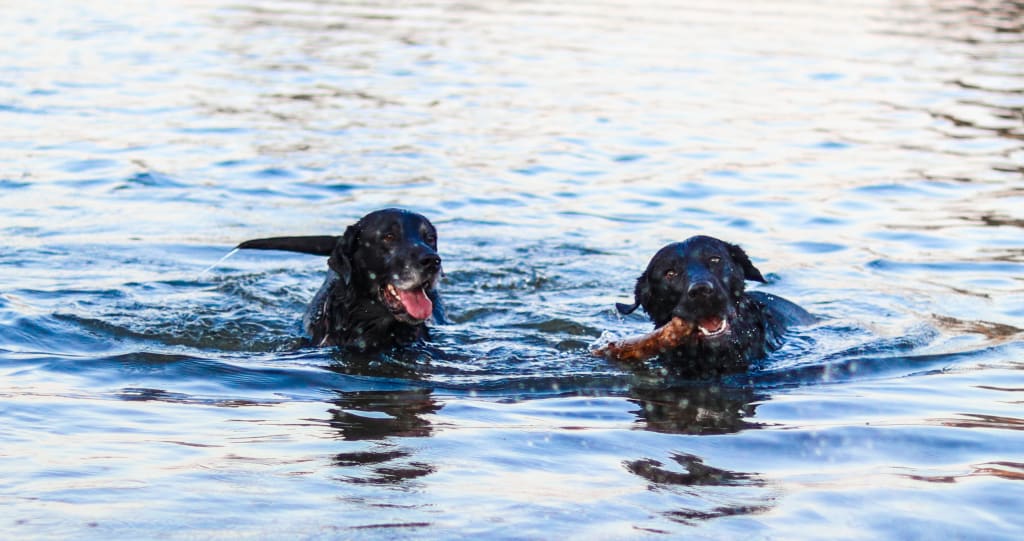Dogs and Water
Is there a too much?

Do you like to take your dog on vacation? Maybe to the beach or the lake? Could your dog sit by the water dish and drink all day long for hours on end? Have you ever heard of water intoxication? Did you know dogs can get it too?
Although seldom, it is still good to know the symptoms, treatment, and how to prevent water intoxication in your dog.
Water intoxication is when there is too much water in the body. Cells will become significantly depleted (a condition known as "hyponatremia"). To rebalance, the body will increase fluids inside the cells. The cells will swell and become larger, including the brain cells, which can cause brain damage.
Amongst the water intoxication, if your dog has ingested too much salt water it can also cause hypernatremia (salt poisoning). Symptoms include vomiting and diarrhea. It will then progress into neurological symptoms (seizures, poor coordination, etc).
At the end, there's a link to a video from someone who this has actually happened to. If you'd like to view it.
Symptoms
Basic stage symptoms include:
- Lack of coordination (stumbling, falling, staggering, etc), restlessness, lethargy, nausea, vomiting, light gum color, excessive drooling, bloating, dilated pupils and glazed eyes.
- Advanced stage symptoms include:
- Difficulty breathing, collapsing, loss of consciousness, seizures and death.
All breeds of dog can end up with water intoxication. However, there are some breeds that are more prone to it:
- Small breed dogs: because of their smaller bodies, they have a shorter amount of time for the water to build up. They will also show symptoms sooner than larger dogs.
- Dogs with little to no body fat: Fit dogs don't have much fatty tissue (if any) to absorb the extra water.
- Dogs with high energy: Dogs who are highly focused and persistent with activities like diving or jumping into the water will allow a big gulp of water down for each jump or dive.
- Dogs with Obsessive-compulsive behavior: Dogs who will drink all day long, for hours on end, no matter where they have to get it.
Treatment
Dogs who have a mild case may stagger for a bit. The problem will be fixed once the dog urinates.
With more serious symptoms you must go to an emergency vet IMMEDIATELY.
Some vets may not diagnose this problem properly due to the fact of how seldom this occurs. Based on the symptoms they may be misdiagnosed with head trauma, hypothermia, or over exertion. Don't let that get to you, just ask them to consider water intoxication.
Treatment is a gradual and careful administration of electrolytes intravenously (through an IV). Diuretics will be given to help get the body rid of the excess water. Drugs, like mannitol, will also be given to reduce the intracranial pressure because of the brain swelling.
How much water is too much?
A general guidance that I follow is that a healthy dog should drink anywhere from 1/2 ounce to 1 full ounce of water per pound of body weight each day.
For example, a 60 lb dog should be getting anywhere from 30-60 ounces of water daily.
When taking your dog with you figure out where the closest emergency vet is and do that for each spot on your trip you'll have your dog (ie hotel, beach, trail, town).
Water intoxication is a scary thought. But, it happens very seldom, and it can be easily prevented.
About the Creator
Ashley Hamilton
Pet mama 🐾. Domestic Abuse Survivor.







Comments
There are no comments for this story
Be the first to respond and start the conversation.